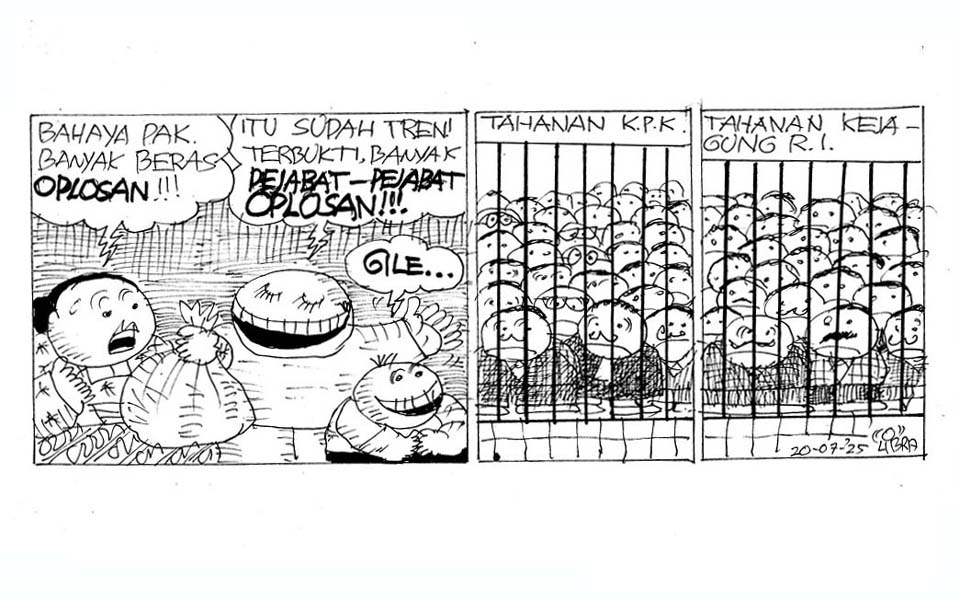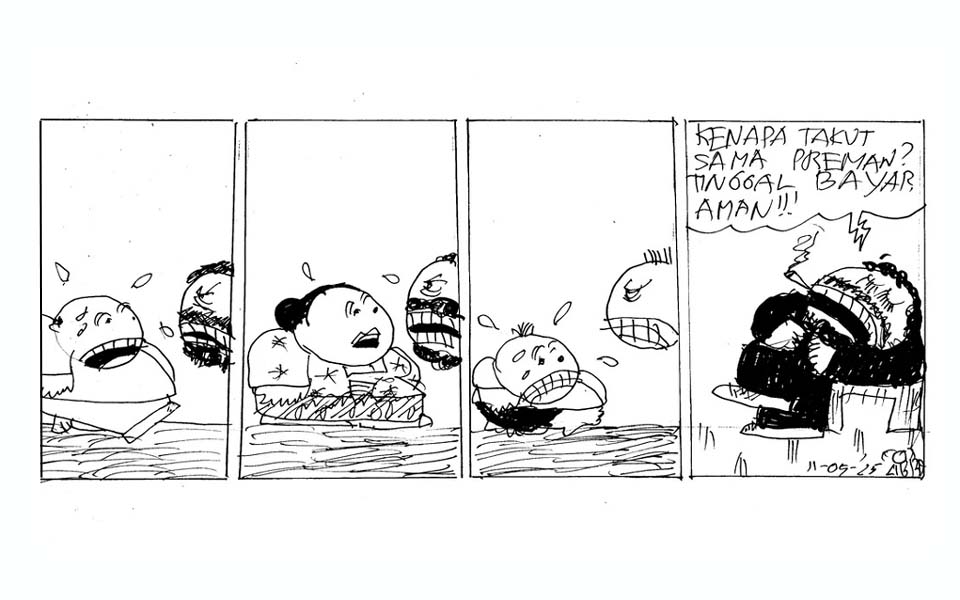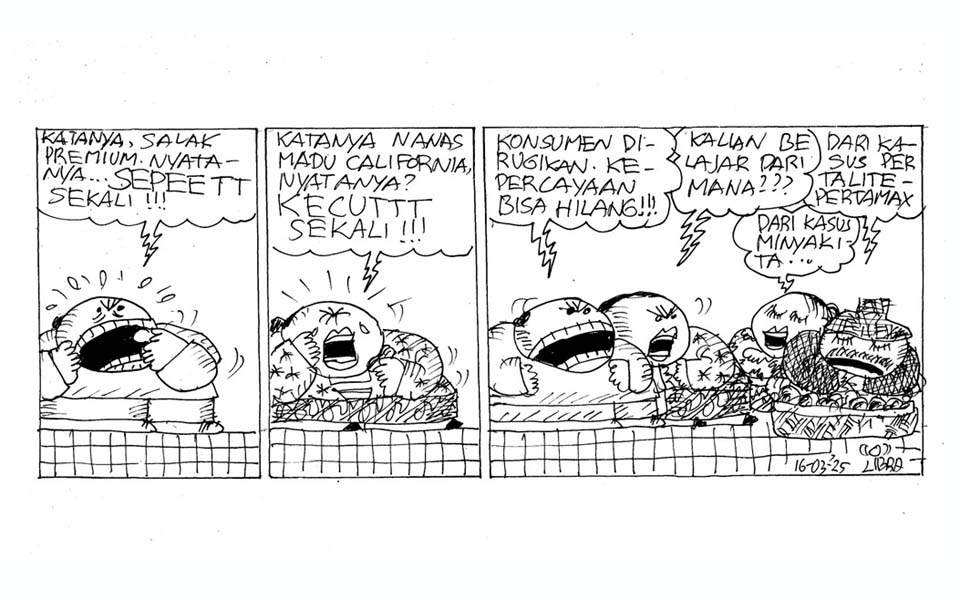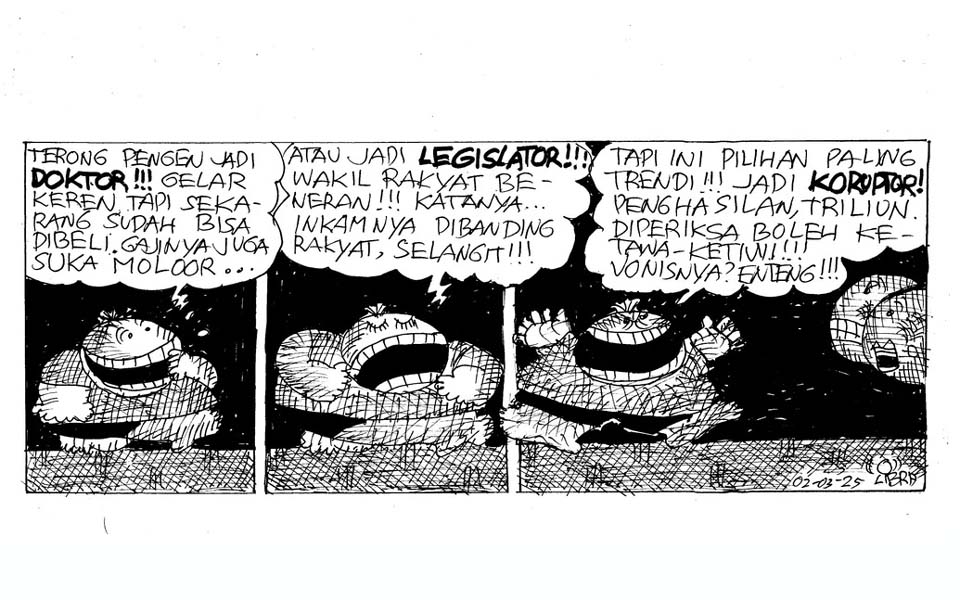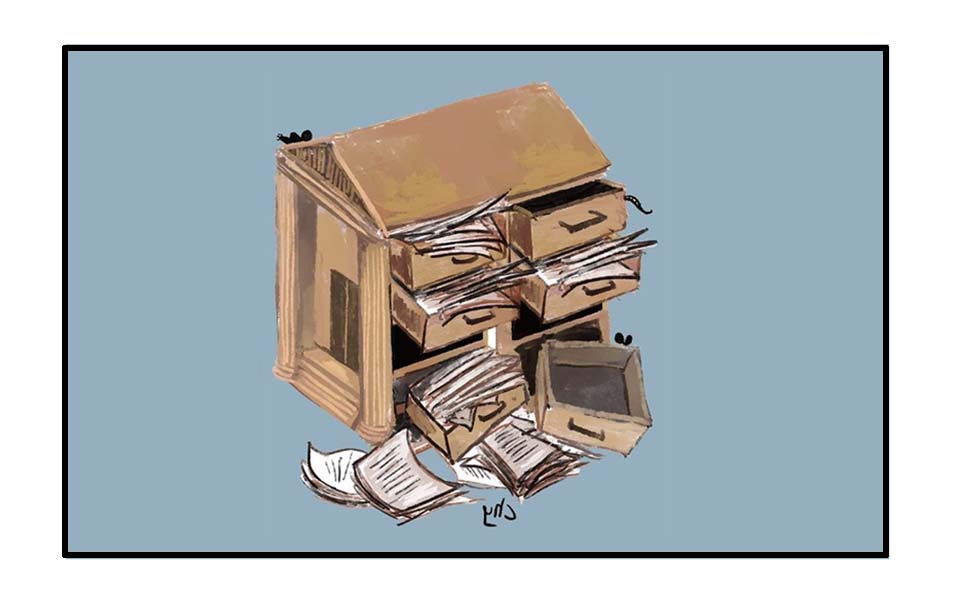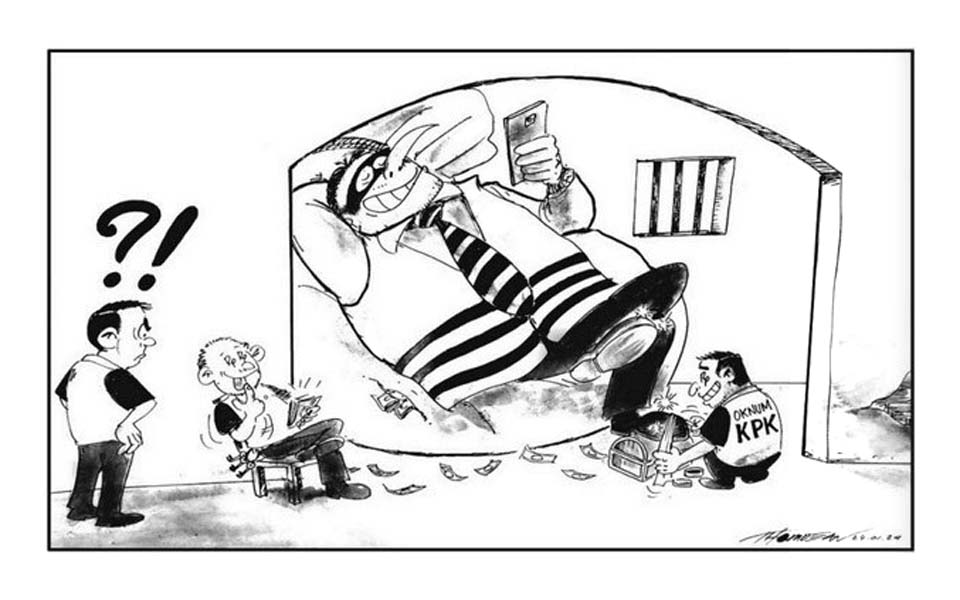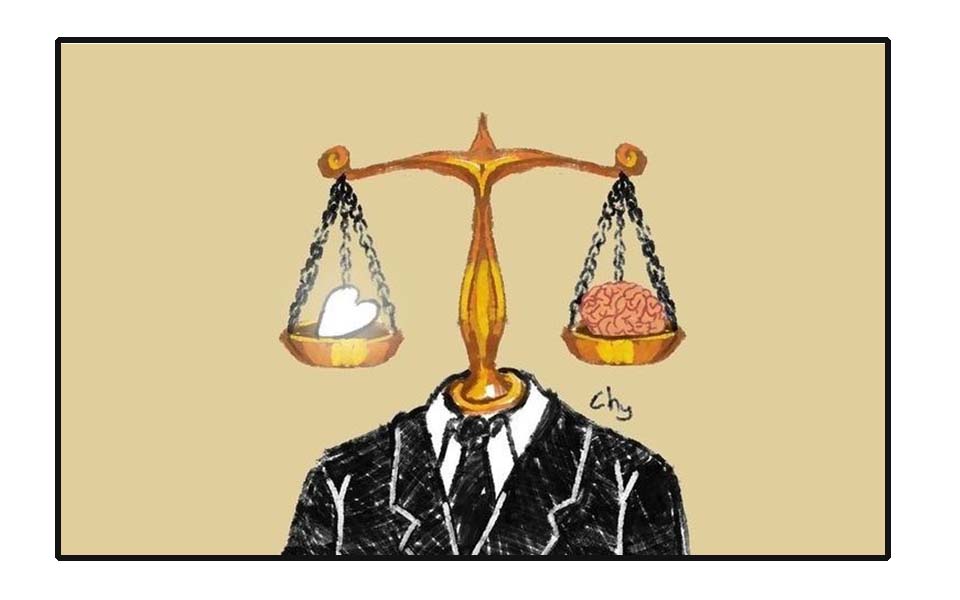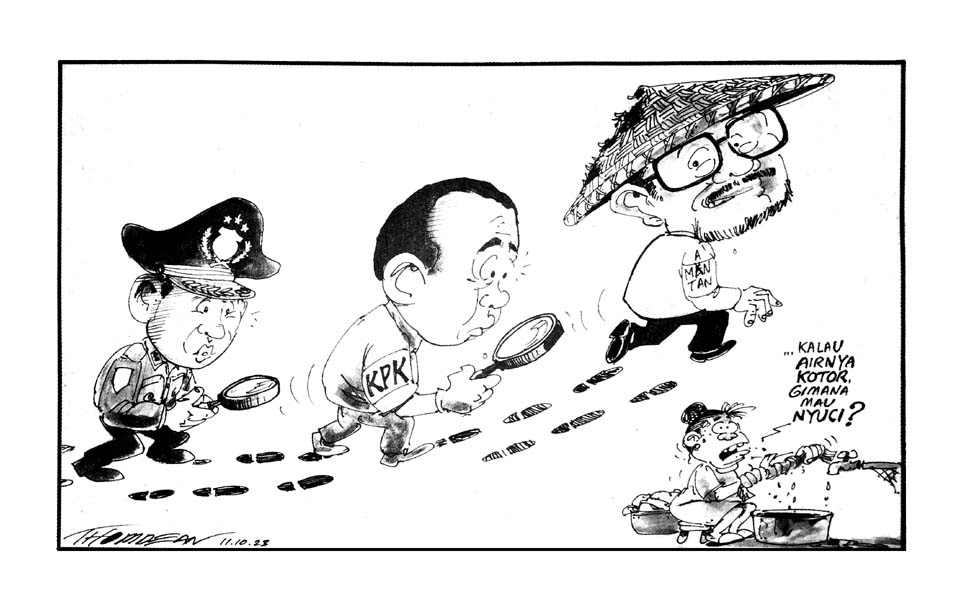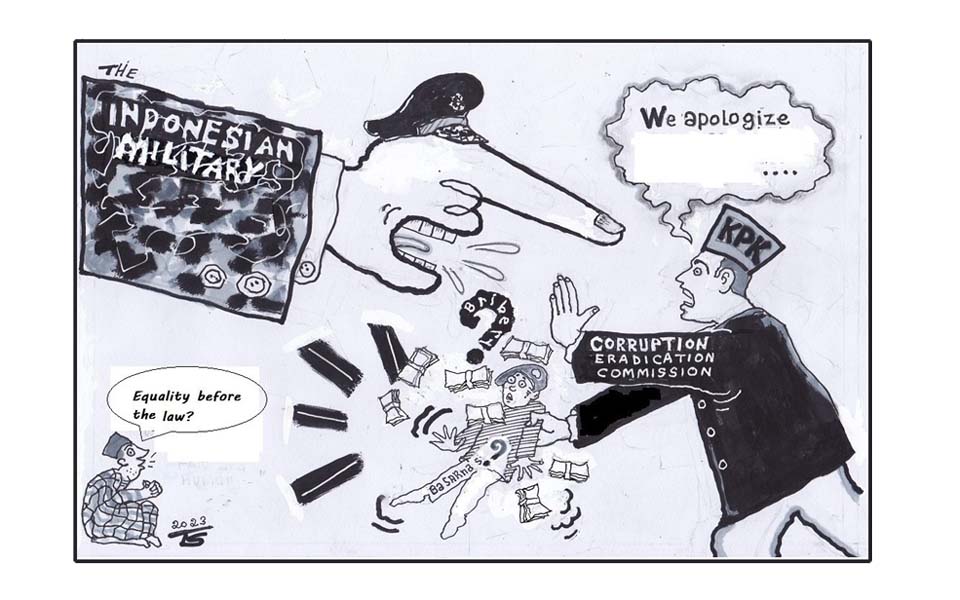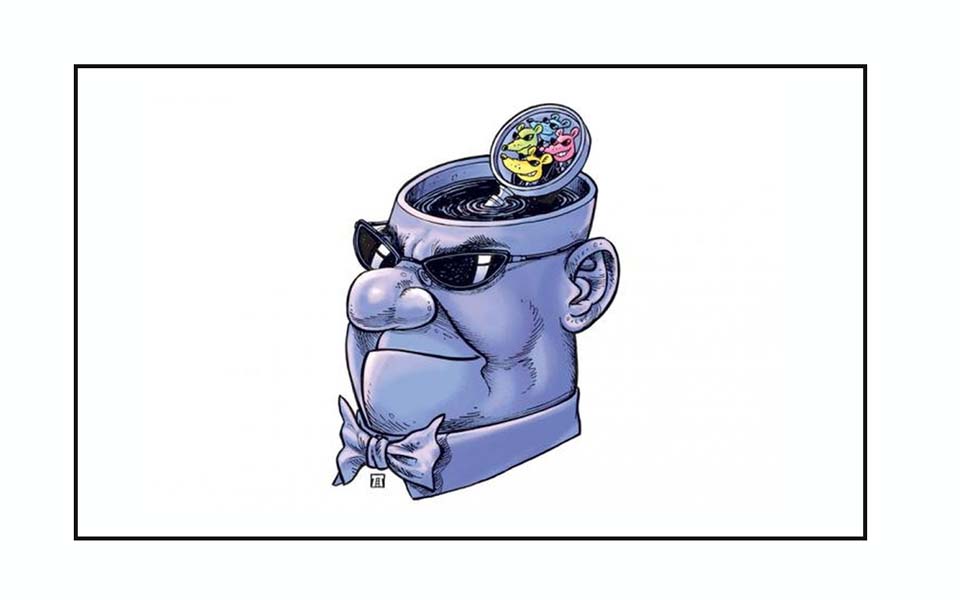
Sandro Gatra – When things are silent, the state should work. In an uproar, the state must explain. In an echoing silence however, the figure of 984 trillion rupiah revealed by the Financial Transaction Reports and Analysis Centre (PPATK) as the value of transactions indicated as being corrupt throughout 2024, actually just leaves an irony: the state is silent.
The figure is not a misreading. Not a miscalculation. Nor is it a wild assumption without any basis. It is the result of official monitoring by the financial intelligence agency that for the past two decades has been the backbone of the anti-money laundering and counter-terrorism financing system.
In a normal country, this kind of report would shake the cabinet, summon the head of state to come down from the mountain, and make law enforcement officers race to uncover the actors behind the figure.
But in this republic, the report only made headlines for a moment, and was then drowned out by political drama, power safaris and selfies by officials on social media.
2024 should have been a milestone for the government transition. While the country is busy preparing for the inauguration of a new leader, the figures on corruption skyrocketed like crazy.
The PPATK report said that out of the total transactions of 1,459 trillion rupiah, around 984 trillion rupiah was directly related to alleged corruption. More than two-thirds. This is not a coincidence. This is a pattern.
Corruption in Indonesia is no longer just a disease. It has become a system. It has become a political machine. It has become the heart of how power is managed, maintained and exchanged.
Political victories are not just a battle of ideas, but an accumulation of funds – which often come from illicit transactions. This is what makes the figure of 984 trillion rupiah not just a statistic, but a reflection of the country's ethical and moral bankruptcy.
Even more frightening, these transactions are mostly carried out through official channels: financial institutions, banks and even government projects.
In other words, the state facilitates the rate of corruption through its leaky system, permissive bureaucracy and weak oversight.
The question is: where is the state? Why doesn't the president immediately order a comprehensive audit? Why doesn't the Attorney General's Office (AGO) and the Corruption Eradication Commission (KPK) immediately conduct an open investigation into the PPATK report?
Why was the House of Representatives (DPR) busier polishing its image towards the end of its term in office rather than forming a special committee to investigate these figures?
The silence of the state creates space for the banality of evil. When transactions of almost a thousand trillion that are suspected of being corrupt are considered normal, we are witnessing a state that has decided not to be present.
A state that chooses to remain silent in the face of the biggest scandal in the history of the modern republic. A state that does not want to make a fuss, even though the public is entitled to ask questions.
What is the use of a PPATK report if there is no follow-up? What is the use of a money laundering detection system if the state allows it to become a long list of findings without resolution?
For years, we have heard the jargon of "synergy between law enforcement agencies". However, the PPATK findings show how fragile that synergy is.
Reports are submitted, but not acted upon. Analyses are prepared, but not read. In some cases, reports are even leaked to the perpetrators allegedly from within the institution itself. The state is not only silent, but also allows itself to be taken advantage of.
Meanwhile, law enforcement officials continue to target small cases, arresting low-level employees or lower-level officials. As if to say: "We are working".
Yet, the real mountain of corruption has never been touched. Big corruptors continue to swim in the pool of power, protected by political networks and approached for coalitions.
Such a large figure is not just about money laundering, but about the people's lost opportunities. Imagine if that amount of money was used to repair schools, build hospitals, strengthen children's nutrition, or increase wages for workers and farmers.
Corruption is not just theft. It is the most heinous form of crime because it steals the future. It keeps the poor poor. It makes children drop out of school. It makes pregnant women unable to access health facilities. Corruption kills, slowly but surely.
The responsibility of leaders
The president as head of state and the head of government must not remain silent. Silence means permissive. Silence means protecting the perpetrators.
The President must assert that this report will not be left as passing news. He must summon the head of the PPATK, the chief of police, the AGO and the chairperson of the KPK. There must be a special team that works quickly and openly to investigate the flow of corruption funds cited by the PPATK.
The DPR for the period 2024-2029 cannot let this go. They are the new face of new hope. Their supervisory function will be tested from the beginning of their term: will they be guardians of the people's interests, or simply a complement to power?
They must immediately respond politically: summon, inspect, and if necessary form a special committee (Pansus). This figure is no joke. This is a state financial emergency that must be addressed with national urgency.
A constitutional state must not be defeated by a transactional state. The law must not be subordinate to power.
When an institution like the PPATK speaks up, the law must act. If not, then we are witnessing a silent metamorphosis from a democratic republic to a kleptocracy.
We are not lacking in authority. We are lacking in courage.
If the state continues to remain silent, the people must speak up. Because this money is our money. Because delayed development, neglected nutrition and damaged roads that are not repaired, all of that is the result of corruption that is allowed to grow.
If the state is not angry, we should be angry. If the state chooses to remain silent, we should be the ones to shout.
And if the figure of 984 trillion rupiah is only part of an annual document, without an investigation, without an inquiry, without accountability – then this republic is indeed no longer ashamed. It has lost its guts. And can only watch the people's money being stolen in silence.
[Translated by James Balowski. The original title of the article was "Rp 984 Triliun Indikasi Korupsi dan Negara yang Diam".]





